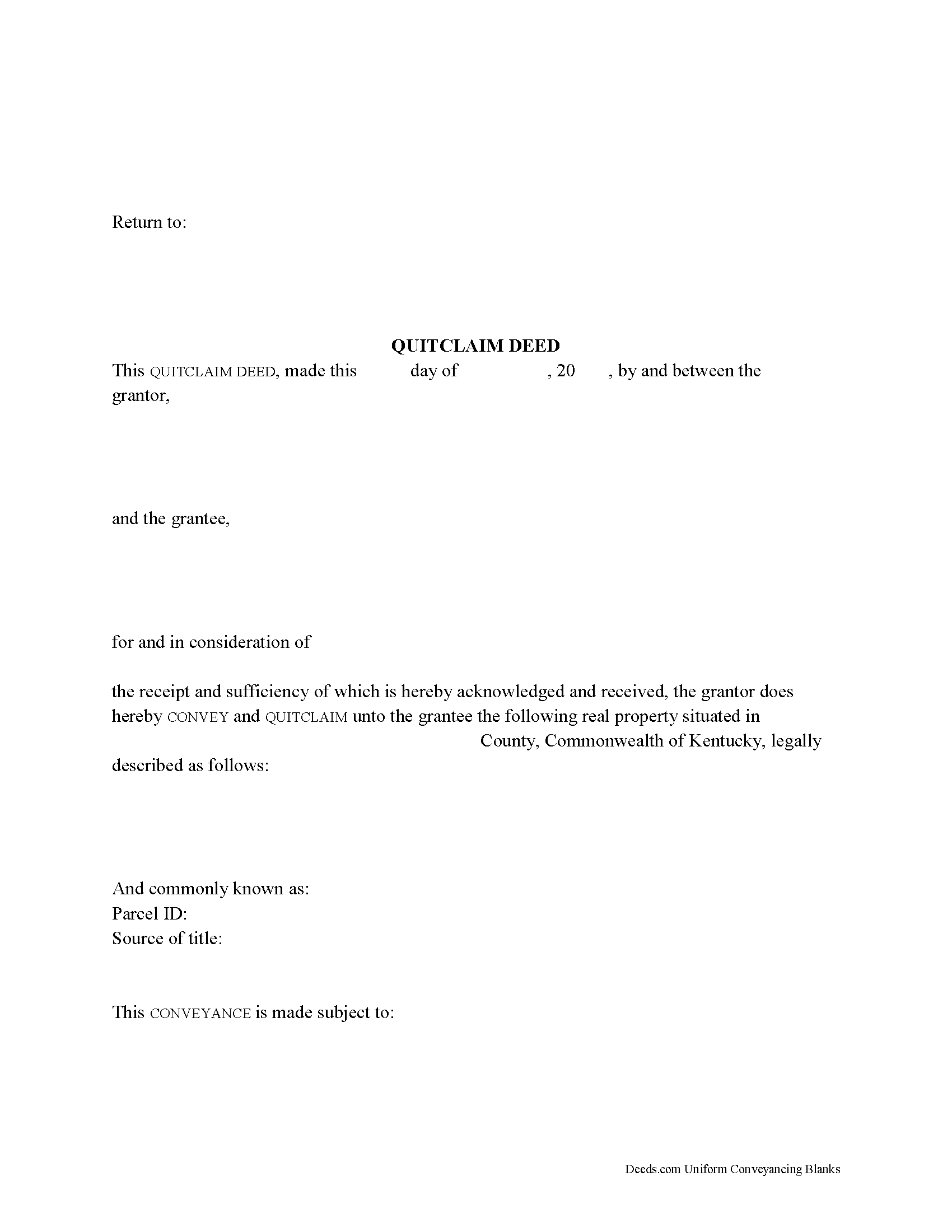Download Kentucky Quitclaim Deed Legal Forms

Kentucky Quitclaim Deed Overview

Real property transfers are governed by Chapter 382 of the Kentucky Revised Statutes.
Although they are not defined in the statutes, Kentucky accepts quitclaim deeds to transfer the rights, title, and interest in real estate, if any, from the grantor (seller) to the grantee buyer), with no protections for the grantee. There may be potential unknown claims or restrictions on the title, and the buyer accepts the risk that the grantor may not have complete ownership of the property. Because of this, quitclaim deeds are commonly used to clear title, for transfers between family members, or in other situations where warranties are not necessary.
A lawful quitclaim deed identifies the names and addresses of each grantor and grantee. Kentucky law requires all recorded documents or documents affecting a change in property ownership to contain information on how the grantee will hold title (vesting). For residential property, the primary methods for holding title in co-ownership are tenancy in common, joint tenancy, and tenancy by entirety. A grant of real estate to two or more persons creates a tenancy in common, unless otherwise specified. Tenancy by entirety is available to married couples only (KRS 381.050(1)).
Provide the complete legal description of the property and a reference to the previously recorded document transferring title to the grantor. State the full amount of consideration exchanged during the transfer, or, if nominal or no consideration has been exchanged, the fair cash value of the property (KRS 385.135). The county assesses a transfer tax on the consideration, due at the time of recording, unless the transaction is exempt under KRS 142.050. At the end of the instrument, include the preparer's name, address, and signature (KRS 382.335) and identify the in-care-of tax address (KRS 382.110(2)). Finally, the form must meet all state and local standards for recorded documents.
The signatures of both the grantor and grantee must be notarized for the deed to be recorded (KRS 382.130). Submit the signed, completed deed, along with any supplemental documentation necessary for the specific transaction, to the local county clerk's office of the county in which the property is located (KRS 382.110(1)). Recording the deed preserves a clear chain of ownership history and provides public notice of the transfer.
This article is provided for informational purposes only and is not a substitute for legal advice. Contact an attorney with questions about quitclaim deeds or for any other issues related to the transfer of real property in Kentucky.
(Kentucky Quitclaim Deed Package includes form, guidelines, and completed example)